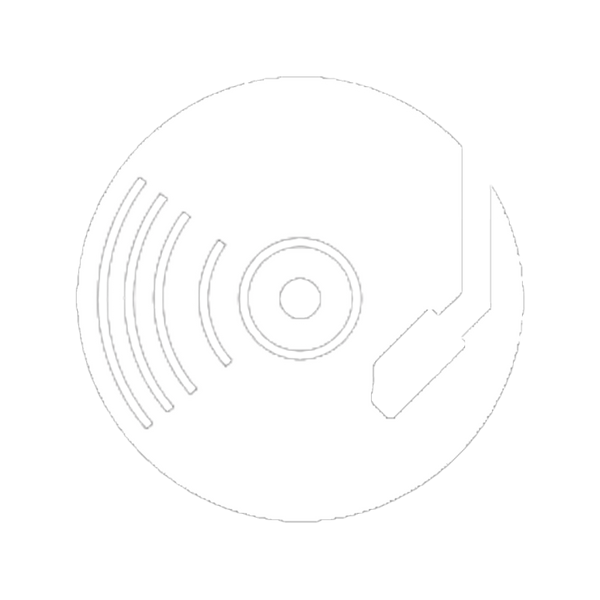Our Full Guide on DJ Mixers
1. What is a DJ Mixer?
A DJ mixer is a central piece of equipment that allows you to:
Blend two or more tracks seamlessly
Adjust volume, bass, mids, and treble for each track
Cue tracks through headphones before playing to the audience
Add effects like echo, reverb, and filters
Transition smoothly between songs
Without a mixer, DJing would just be pressing play on multiple decks — and that’s no fun.
💡 Tip: If you’re starting out, you can practice mixing on a controller with a built-in mixer before investing in a standalone unit.
2. Types of DJ Mixers
2-Channel Mixers
Perfect for beginners or minimal setups. You can mix between two tracks at a time and practice basic transitions.
Best Example: Pioneer DJM-250MK2 (£249) – Affordable, compact, with Magvel fader and basic effects.
4-Channel Mixers
For more advanced DJs who want to mix multiple tracks, add samples, or run a full club setup.
Best Example: Pioneer DJM-750MK2 (£899) – Full 4-channel mixer with professional FX, flexible routing, and USB connectivity.
High-End Club Mixers
Used by professional DJs in clubs, festivals, and radio. These mixers have ultra-low latency, advanced FX, and pro-grade sound quality.
Best Examples:
Pioneer DJM-900NXS2 (£1,399) – Industry standard, perfect for club setups.
Pioneer DJM A9 (£1,999) – High-end 4-channel mixer with advanced effects and superior sound.
Allen & Heath Xone:96 (£1,499) – Warm analog sound, favored by house and techno DJs.
3. Key Features to Look For
When buying a DJ mixer, consider these features:
Number of Channels – 2 channels are fine for beginners; 4 channels are standard for pros.
EQs – Look for 3-band EQ (low, mid, high) per channel.
FX – Filters, delays, echoes, and reverb help you add creative flair.
Cueing System – Lets you listen to tracks in your headphones before playing them live.
Faders – Smooth faders are crucial for beatmatching and smooth transitions. Magvel faders are especially durable.
Connectivity – XLR for speakers, RCA for decks, USB for software integration.
Digital Integration – Some mixers connect directly to rekordbox, Serato, or Traktor.
💡 Pro Tip: If you plan to play in clubs, invest in mixers that match the club standard layout, like the DJM-900NXS2 or DJM A9.
4. Mixer Layout Basics
Here’s what you’ll find on most mixers:
Channels – Vertical strips for each track, with fader, EQ, gain, and cue buttons.
Crossfader – Horizontal fader for transitioning between channels.
EQ Knobs – Low, mid, high adjustments for each track.
Effects Section – Filters, delays, echo, and other creative effects.
Master Volume – Controls output to your speakers.
Headphone Cue – Lets you pre-listen to tracks.
5. Modular vs Controller Mixers
Controller Mixers – Built into DJ controllers. Great for beginners and home setups.
Standalone (Modular) Mixers – Separate from decks; used by professionals with CDJs, turntables, or multiple media players.
💡 Tip: Standalone mixers give you flexibility and longevity — you can upgrade your decks without changing your mixer.
6. Recommended Mixers by Budget
Budget Under £500
Pioneer DJM-250MK2 (£249) – 2-channel, beginner-friendly.
Pioneer DJM-450 (£499) – 2-channel, basic, but has more effects an USB recording
Budget £500–£1,200
Pioneer DJM-750MK2 (£899) – 4-channel, pro-level effects and flexible routing.
Budget £1,200+
Pioneer DJM-900NXS2 (£1,399) – Old club standard, still widely used in clubs worldwide.
Allen & Heath Xone:96 (£1,499) – Warm analog sound, perfect for house and techno.
Pioneer DJM A9 (£1,999) – High-end, club-standard mixer with advanced effects and ultra-low latency.
7. Final Tips for Choosing Your Mixer
Match your gear – If you have CDJs or an XDJ system, pick a mixer that fits the layout.
Think long-term – Spend a bit more on a reliable mixer you’ll use for years.
Try before you buy – Hands-on feel matters more than specs.
Software compatibility – Make sure it works with Serato, rekordbox, or Traktor if needed.
🔗 Related Gear Guides
DJ Controllers – For laptop-based/standalone setups.
CDJ/XDJ Players – For club-standard setups.
Headphones & Monitors – Essential tools for any DJ.
